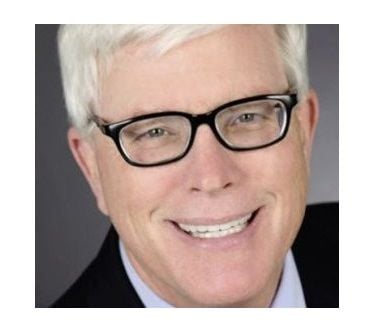
President Donald Trump has made such a major error. He needs to gather in his experienced, genuine supporters on the Hill - Sens. Tom Cotton, R-Ark., Joni Ernst, R-Iowa, Lindsey Graham, R-S.C., Dan Sullivan, R-Alaska, and Todd Young, R-Ind., plus a couple of young warriors-turned-congressmen such as Rep. Mike Gallagher, R-Wis., and Rep.-elect Dan Crenshaw, R-Texas - and revisit the decision to pull U.S. troops out of Syria.
This decision puts one of Trump's signal achievements - the defeat of the Islamic State - in grave danger. As much as it would pain veterans of the Obama administration to admit, it was Trump who changed the rules of engagement in the battle with the Islamic State. It was Trump who oversaw their rout and retreat. But the Islamic State is not defeated. And even if the Islamic State stays on its collective heels, those who would replace them - Iran, Bashar al-Assad's regime and Russia - are greater threats to Americans in Iraq and to our ally Israel.
Retired Gen. Stan McChrystal was my guest on my radio show Thursday. He was originally scheduled for a conversation about his superb new book "Leaders" - mandatory reading for everyone with authority inside the Beltway - but of course I began the discussion with questions about the decision to scamper from Syria:
Hewitt: We set this [interview] up weeks ago, and yesterday, the president announced we're pulling out of Syria. You have to know what that means in the military. What do you think of that decision?
Gen. McChrystal: I think it's ill-taken. I think that we will lose our influence in the region. And while we may not like the risk of having soldiers, sailors, airmen and Marines there, we have to have influence in the region, and that means presence.
HH: And so when we withdraw from that, does that put the gains in Iraq at risk, in your view?
SM: I think it does. I think it puts the stability of the entire region more broadly at risk.
HH: And in terms of ISIS being defeated, there is still 15-20,000 flying the black flag. You went one on one with these guys. We're going to talk about Zarqawi, because Zarqawi figures in your book, "Leaders." Do you think they're eradicated? Are they still a risk?
SM: I think they're a big risk. And ISIS is as much an idea as it is number of fighters. So you can get fixated on counting heads. In reality, it's a franchise kind of system. It's very powerful still, and it needs to be dealt with.
HH: Okay, so now when soldiers hear they're going home, they're usually pretty happy. But do you think the soldiers who get sent to Syria are unhappy about doing what is in essence garrison work at this point, right?
SM: I think they think it's important. The ones I've talked to think it's important. And they also know, particularly this generation, if we don't get it done, they'll be back.
HH: All right, last question on this. The president's made a decision. Leaders sometimes make bad decisions. That's in your book, a lot of bad decisions. Lee and the third day at Gettysburg, right? We'll come to that. So Lindsey Graham has said don't do this. You've got Tom Cotton, Dan Sullivan, Todd Young, Joni Ernst, a lot of combat veterans. What would you do if you're confronted with overwhelming evidence of a bad decision? What's the advice a leader ought to follow in that situation?
SM: Well, I think the leader ought to listen to advice. Now there are times a leader has to go against advice, because a leader has the ultimate responsibility. But the reality is if a lot of rational people are saying something different from what you decided, you ought to relook at it.
![]()
Listen to this general, President Trump, and to your friends who have given you credit where credit has been due: for rebuilding our hollowed military, for hitting Assad twice, for standing up to Russia in Ukraine, for pushing NATO members to meet their defense commitments, the "new NAFTA" with Canada and Mexico, etc. Don't put all of that at risk with a disastrous decision to invite the return of the Islamic State terrorists you ordered our military to defeat, or the rise of an Iranian-dominated crescent of terrorism and war that will draw tens of thousands of Americans back to the land where they have already secured a stable peace at great cost in lives, wounds and treasure - twice. Stay the course.
Keep the peace.
(COMMENT, BELOW.)


 Contact The Editor
Contact The Editor
 Articles By This Author
Articles By This Author